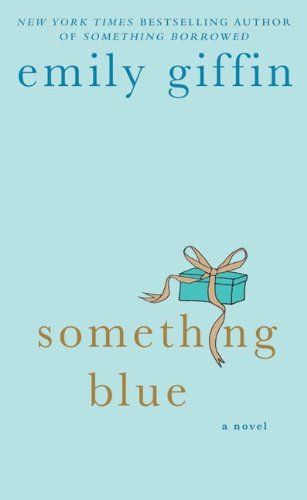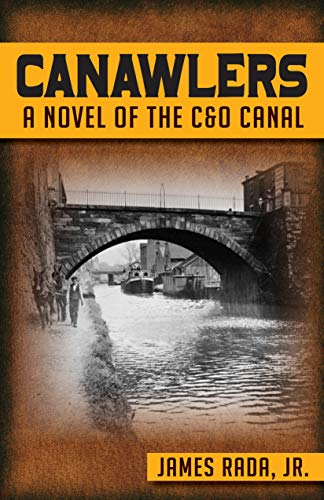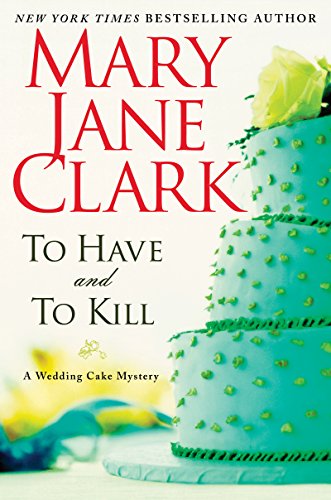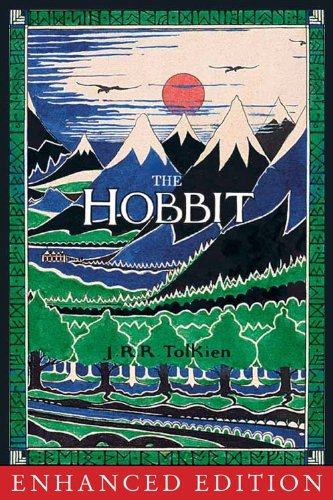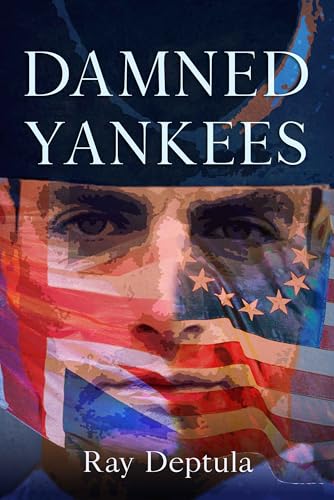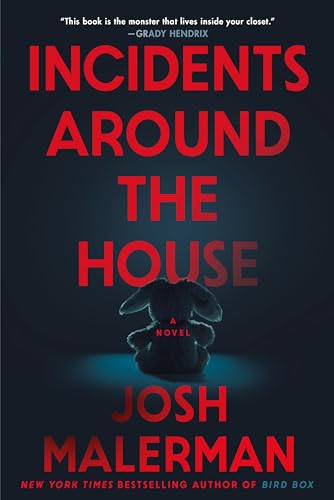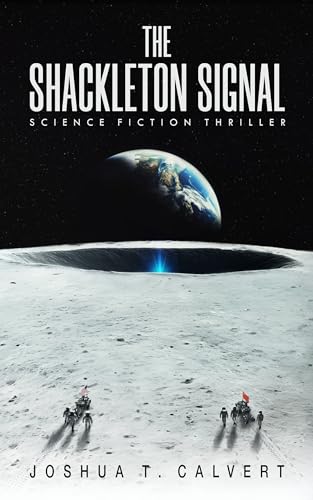An Excerpt from
False Dawn
(a Jake Lassiter mystery)
By Paul Levine
Copyright 2010 by Paul Levine and reprinted here with his permission.
1
HOOKED
Vladimir Smorodinsky ducked to the left, and the grappling hook, rather than piercing his skull, bit into the fleshy meat of his trapezius, just missing the collarbone. Okay, so maybe he wasn’t Muhammad Ali in his prime, but still a pretty fancy move, since Smorodinsky was busy toting a hundred-fifty-pound crate of Mexican flatware at the time, expecting nothing worse than a hernia, and never seeing his assailant approach from behind.
Maybe the burly Russian felt something, air stirring or sneak ers squeaking. Maybe he caught a whiff of the café Cubano on his attacker’s breath, or possibly the last fragment of genetic matter derived from a hairy-knuckled Paleolithic hunter warned him of the danger. Whatever the reason, Smorodinsky ducked left, the grappling hook whizzed right and sliced through his blue chambray shirt, sinking into his shoulder.
He never cried out.
Not a sound.
Just the trace of a grimace, his jaw muscles tightening.
His assailant twisted the hook free, ripping out chunks of muscle and tendon and splattering himself with blood. Still, not a grunt from the big man, who dropped the wooden crate of knives and forks, turned, lowered his head, and like a wounded boar, attacked. The top of his skull caught the assailant squarely on the chin, knocking him backward and skittering the grappling hook across the floor and under a wooden pallet.
Both men stayed on their feet and, like cable TV wrestlers, clawed, gouged, and chewed on each other’s vulnerable spots. They toppled into a tower of Scotch whiskey cartons and bounced off a stack of rectangular boxes of Taiwanese bicycles. They slugged and kicked and cursed-one in Russian, the other in Spanish-as they scuffed and bruised each other with a series of pokes and punches. An elbow caught Smorodinsky in the Adam’s apple, but the Russian merely gagged before cuffing the smaller, darker man on the ear with a thunderous forearm that spun him sideways. Thirty pounds lighter than Smorodinsky, he threw a series of jabs, stinging the man’s face but inflicting little damage. When the Russian moved closer, the man aimed a kick at his groin but connected with the hipbone.
Eventually, Smorodinsky got the better of it. He fractured two ribs with a decent right hook. He paralyzed the man’s right arm with a two-fisted blow that did nerve damage to the shoulder. Then, moving inside, he bear-hugged the fellow, crushing his bro ken ribs and raising him off the floor. He dragged the man’s face across the chicken-wire mesh of a freestanding refuse container, tearing off a goodly portion of mustache and some lower lip. With the man howling in pain, Smorodinsky did it again.
* * *
How do I know all this? I wasn’t there, of course. I never am. In my profession, I hear tales of mayhem after the fact. Clients, wit nesses, expert consultants all reconstruct what happened, seldom agreeing. They don’t necessarily lie, but, the power of observation being what it is, they don’t tell the literal truth either. Each of us sees reality through a lens of our own making. Our prejudices and self-interest shape the world into what we want it to be, or fear it is. So I was stunned that day when Francisco Crespo told a story guaranteed to get him twenty-five years to life.
Crespo sat in my office thirty-two floors above Biscayne Bay, watching me through eyes the color of burned toast, sipping a WASP law firm’s watery imitation of espresso through torn lips. He wore baggy khaki pants and a Disney World T-shirt-Mickey, Minnie, and Pluto-and was shivering in the air-conditioning. He had a grid of welts across his forehead and cheeks as if he’d been run over by a steel-belted radial tire. Good. That would help the self-defense claim, though it might be difficult to explain sneaking up on the Russian from behind.
I could think about that later, but the first task was to sum mon a photographer and tell him to beef up the contrast to em phasize the cuts and scrapes. The face should be shot in close-up to accentuate the damage. There’s a personal injury lawyer in town who once hired a professional makeup artist to crank up the color of his clients’ bruises. Using his experience with South Beach models who often tarnished their complexions with latenight drugfests before morning shoots, the artist found that re versing the process-adding eggplant-colored stains to perfectly fine skin-was easier and more profitable. But the lawyer got carried away, using a defrocked doctor to suture uninjured fender-bender clients, occasionally removing a healthy spleen or gall bladder. That seemed a tad excessive for the state bar, which suspended the fellow for sixty days or so.
For the full-body pictures, I told the photographer to stand on a ladder and angle down, making Crespo look even smaller. Up close, you could see my client was one of those sinewy guys who was plenty quick and twice as strong as he looked. All muscles and wires strung taut across a small bone structure. Work-hard ened hands, wrists thickened from his latest job, hauling crates at a customs broker’s warehouse for nonunion wages. The words “Cuba Libre” were crudely tattooed on his right tricep. His face was narrow, his complexion dusty, at least it had been before it had been bashed by the thick-necked Russian warehouseman. There was a gap where a front tooth should have been, but it didn’t matter. Crespo seldom smiled.
* * *
When Smorodinsky finished shaving Crespo with the chickenwire mesh, he just dropped him to the cement floor. While Crespo gagged and dry-heaved, the Russian gave him one good thwack to the temple with a reinforced work boot. The paramedics say the blow knocked Crespo unconscious, leaving him with a concussion. They found him that way, sprawled out alongside the refuse container. I would subpoena them as defense witnesses. Almost as good as alibi witnesses.
But no, Crespo insists, the lights never went out. Tucked into the fetal position, feeling the cold concrete floor against his bleed ing face, Crespo watched Smorodinsky dab at the blood on his own shoulder and lumber down the aisle between thirty-foot-high rolls of Haitian cotton.
* * *
You know it would help your case if you were unconscious just like the 911 boys said,” I told him, as nonchalantly as possible. Okay, okay, I know all about the canons of ethics. A lawyer shall not suborn perjury. But there’s a footnote. It’s okay to let the client know whether the truth will set him free or buy a one-way ticket to Raiford.
I learned my ethics watching Jimmy Stewart coach Ben Gazzara into his temporary insanity defense in Anatomy of a Murder, and if that’s too subtle for your tastes, how about James Mason teaching his client, a doctor accused of malpractice, a few courtroom tricks in The Verdict.
“If you were seeing stars,” I continued, “somebody else must have-“
“Sí, yo se, pero no paso asi. The medics are wrong. I wasn’t going to let the bastard get away so he could drink vodka with his amigos and laugh at me.”
It got worse then, of course. It always does.
There was the Russian, heading for the exit, and here was my client, revving up his brain cells into the highest reaches of their two-digit IQ, seeking revenge on a guy who resented being mis taken for a side of beef.
Crespo said he watched the Russian turn left at the end of the aisle and head toward the loading dock. The Mitsubishi forklift was at the end of the second row. Crespo had used it that morn ing to move fertilizer crates, and now he wanted to cut Smorodin sky off before he reached the exit. Crespo ran to the forklift, started it up, and chased after the Russian, approaching him from behind. Why is it my clients are never inclined to face guys head-on?
“The big bastard heard me coming,” Crespo said. He seemed to be staring at or through the photo of my college football team on my office wall. On the credenza is a no-frills white helmet with a single blue stripe and a crack that would do the Liberty Bell proud. I don’t keep my diplomas here. My clients ask me to trust them; I figure they ought to have faith I studied some law, even if it was after the sun went down.
“He turned around,” Crespo continued, “said something in Russki, and jumped onto a rack of Japanese transmissions. A tough hombre, big through the shoulders, like you, but shorter, and slow. Heavy legs.” Crespo snorted, and his eyes focused somewhere else, probably remembering some barroom brawl where another big lug mistook him for an underfed exilado, then ended up with a busted nose or a shiv in the belly.
“You used the forklift merely to catch up with him,” I sug gested, helpfully. “You never intended to-“
“Estas loco? I intended to kill him.”
Oh, brother. What would Jimmy Stewart have done? I decided to listen. Francisco Crespo stood and walked around my office. He picked up a deflated football from a position of honor on a bookshelf and ran his finger over the white paint that told the score of a long-forgotten Dolphins-Jets game. He stood near the floor-to-ceiling window without getting too close, and he avoided the draft from the air-conditioning vent. Then he finished the story in a matter-of-fact voice. I studied his body language and watched his eyes. No sign of deception. But how could he be lying? With every word, he incriminated himself.
* * *
Smorodinsky grabbed the rack’s support strut like a rider pulling himself aboard a trolley car. Crespo zoomed past on the forklift and jerked it around, the back wheels whirling it into a steep turn. The Russian jumped down and was running the other way, grabbing wooden crates from the shelves, tossing them into the aisle behind him. The forklift smashed over them and caught up with Smorodinsky at an intersection of four aisles. He swerved right, wanting the forklift to rush past him. But the big Russian lost traction on the slippery concrete. I pictured his feet sliding out from under him, and I remembered trying to cut on artificial turf after a rain.
The fork was set about belly-high. It caught Vladimir Smorodinsky in midstep, slightly below the rib cage on the right side. The blade pierced the oblique muscles of the abdomen and just missed the liver, but, according to the medical examiner, plunged through the ascending colon, the right kidney, the duo denum, and worst of all, the inferior vena cava, which ordinarily carries blood to the heart from the lower extremities, but just then emptied itself all over cartons of beach towels from the Do minican Republic.
There is a lever to the right of the steering wheel, Crespo told me, happily demonstrating how he pulled it back, raising the fork, hoisting Smorodinsky off the floor. Crespo never hit the brakes. Instead, he accelerated, carrying the bleeding Russian with him.
“The bastard was stuck like, like . . .” He searched for an expression. “Like an olive on a toothpick,” he said with malicious glee.
The forklift careened down the aisle, sideswiping metal racks with the clang of screeching metal and finally smashing into the corrugated metal door near the loading dock. The bloody steel fork reverberated against the wall like a pealing church bell. Vla dimir Smorodinsky was impaled there, his feet four feet off the ground, his arms pinned to the wall in a macabre crucifixion, his insides oozing onto the concrete floor.
* * *
I peered out the window at Biscayne Bay three hundred feet be low. A southeast wind rippled small whitecaps across the green water. At Virginia Key, three multicolored sails shimmered in the afternoon sun. Boardsailors. On cue, they jibed, and one of the masts dipped into the water, dunking the sailor who had flipped his boom too late.
I asked, “So why did the paramedics find you unconscious back at the refuse container?”
Crespo shrugged. “No se. I must have walked back there and fainted.”
Right. You could cut off both his legs at the knees, and he wouldn’t faint.
“Francisco, listen to me. This isn’t a simple A and B. If you tell that story, you’ll take a fall for second-degree murder. Twenty-five years minimum. Now, I can’t tell you to go up there and lie, but maybe you don’t remember it all that well. You were under tremendous stress …”
He waved his hand as if to say it was no big thing, just a little fight to the finish in a warehouse hard by the docks of the Miami River. He wasn’t going to help me, and that made it hard to help him. Outside my windows, one wet boardsailor water-started and pumped his sail to catch up with his two buddies. They were headed on a broad reach across the channel to Fisher Island, once a Vanderbilt retreat, now a condo sanctuary of vacationing millionaires who want the security of a saltwater moat to keep out the riffraff. If the boardsailors didn’t have their papers in order, the security guards might pick them off for target practice.
“Here’s how I see it. I can just keep you off the stand, and based on the state’s case, all they’ve got is a fight between the two of you, and after you’ve passed out, somebody else came along and made shish kebab out of the Russian.”
“Pero, no one else was there.”
Sometimes, you just want to tell your clients to shut the hell up. “Someone had to be there. Someone in the office called the police, right?”
“No se, you gotta ask them.”
I already had. Somebody called 911 but wouldn’t leave a name. Somebody saw what happened, but who?
“If we can show who drove the forklift, or if we just raise enough doubt that you did, you’d walk on the murder charge. I could probably plead you to aggravated assault right now if you’d tell the prosecutor who it was. Abe Socolow isn’t stupid. An ass hole maybe, but not stupid. It’s a low-profile case. Nobody knew the victim. But if Socolow thinks you’re covering for someone who ordered the hit, he’ll go after the maximum.”
Crespo shrugged again and touched a finger to the welts on his face. “You’ll figure it out for me, numero cincuenta y ocho. You always do.”
I wasn’t getting through to him. “You have no lawful excuse for attacking Smorodinsky. You’re going-“
“He was a comunista.”
“I didn’t know there were any left …”
Crespo shrugged.
“Or that you were political,” I added.
Still, he didn’t respond.
I rubbed my temples and stared out the window again. The boardsailors were hidden in the shadows of the Fisher Island condos. In a perfect world, I would be on the water, the wind crack ling my sail. To the north, the cruise ships were lined up, single file, at the port along Government Cut, preparing for their Carib bean cruises, thousands of tourists clustered on the main decks, awaiting their prepackaged fun. For some reason, I thought of Pearl Harbor.
“So the two of you disagreed about politics,” I said. Take what they give you, get a few anti-Castro Cuban-Americans on the jury, who knows?
“No, we disagreed because the cocksucker stole twelve dollars from my locker.”
Oh, shit. I tried another theory. “You were defending your property. You caught him in the act, and in the heat of the mo ment-“
“No, he stole the money two months ago. Pero, I owed him thirty bucks at the time. He’d been bugging me about the eighteen I still owed him, and I just got tired of it. That’s all there is to it. I killed the hombre,” my client said, “because he was a pain in the ass.”
* * *
Atlantic Seaboard Warehouse was where it was supposed to be, on South River Drive, a pleasant thoroughfare if you like chainlink fences topped with barbed wire, vacant lots covered with broken beer bottles, and Doberman pinschers with psychopathic personalities. The warehouse opened to the rear, its loading docks fronting on the Miami River, home to rusty, overloaded freighters from the Caribbean and Latin America.
I had sent the photographer here the day after Crespo came to my office, but photos, diagrams, and police reports only take you so far. There’s no substitute for being there. Photos and sketches often mislead. You can’t pick up distances, lines of sight, the three-dimensional surroundings that make the setting real. That’s why jurors are sometimes taken to the scene of the crime.
The warehouse was cavernous, piled high with goods from dozens of countries. Crates of foodstuffs-cereals, canned vegeta bles, bottled juices-filled several acres along the western wall. You could feed a starving country with the inventory. In another section, boxes of bicycles from Taiwan were piled to the ceiling, and nearby, thousands of concrete fence posts from Colombia were crisscrossed in stacks that resembled a house of Popsicle sticks. The open doors, the width of a tractor trailer, admitted the brackish stench of Biscayne Bay and the thick smell of diesel fuel from the river. I heard three toots of a horn, then the coughs and sputters of a tugboat nudging a barge under the Second Avenue drawbridge.
I retraced the steps, starting with the grappling hook attack, ending with the forklift. The layout was just the way Crespo de scribed it. Once Crespo-or whoever-mounted his trusty steed of a forklift, Smorodinsky never had a chance to get to the exit. I heard an electric buzz behind me, and whirled just in time to see a forklift approach the intersection of two aisles. The machine carried a pallet of dog food cans, and the driver, a young His panic with a mustache, expertly steered the load around a corner.
The concrete floor was remarkably clean, but as I neared the cartons of beach towels, I saw the black spots. Co
 excerpt from False Dawn, the third Jake Lassiter thriller, which is now available in the Kindle Store at a $3.99 price point that’s actually lower than the price of these international bestsellers when they went to mass market in the 90s after their original hardcover release.
excerpt from False Dawn, the third Jake Lassiter thriller, which is now available in the Kindle Store at a $3.99 price point that’s actually lower than the price of these international bestsellers when they went to mass market in the 90s after their original hardcover release.
